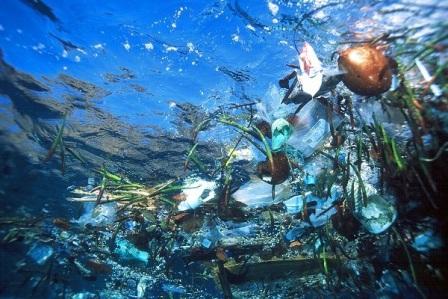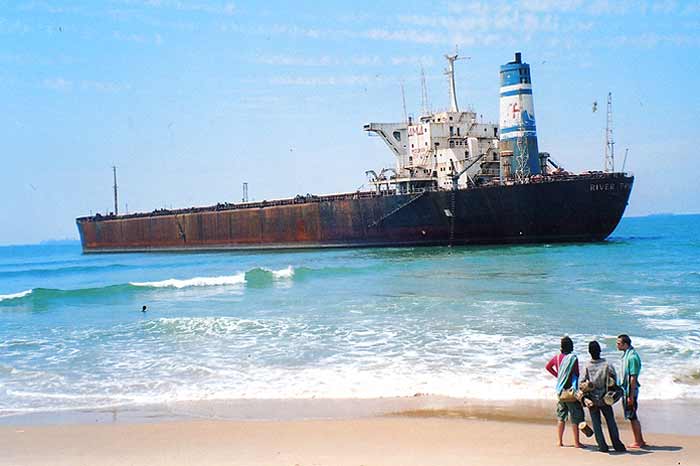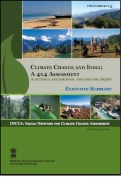Oceans and Coasts
Coastal Regulation Zone Notification 2011: Not the end of the road - An EPW paper
Posted on 01 Mar, 2011 11:59 AMIt falls short of offering greater protection to the coastal ecosystem, recognising the inalienable right of fisherfolk to their habitats and providing them with representation in decision-making.
State of knowledge of coastal and marine biodiversity of Indian Ocean countries – An article from the Public Library of Science
Posted on 13 Feb, 2011 08:14 PMThe Indian Ocean extends over 30 per cent of the global ocean area and is rimmed by 36 littoral and 11 hinterland nations sustaining about 30 per cent of the world’s population. The landlocked character of the ocean along its northern boundary and the resultant seasonally reversing wind and sea surface circulation patterns are features unique to the Indian Ocean.
Coastal Regulation Zone (2011) Notification, Island Protection Zone (2011) Notification and Traditional Coastal and Marine Fisherfolk (Protection of Rights) Act (2009) by the Ministry of Environment and Forests
Posted on 11 Feb, 2011 09:22 PMThe Coastal Regulation Zone (CRZ) notification of 1991 has been replaced recently in January 2011 by the latest CRZ notification of the Ministry of Environment and Forests (MoEF).
Our Oceans - A plastic soup - Earth Institute
Posted on 28 Jan, 2011 05:07 PM Photo credit: cesarharada.com
Photo credit: cesarharada.com
Implementing Vessel Monitoring System in India
Posted on 22 Jan, 2011 03:19 PMImplementing Vessel Monitoring System in India
Towards ruin: Regularisation rather than regulation has become the norm in our coastal policy at present, which is actively undoing one of India’s most significant environmental regulations - Claude Alvares
Posted on 21 Jan, 2011 03:58 PM
MV River Princess Stranded for 10 years now, the grounded ship has been wreaking ecological havoc on Candolim beach in Goa
Indira Gandhi’s concerns about protecting the ecology of India’s coasts, which held sway for almost 20 years, are being subverted under a regime supervised by her daughter-in-law and grandson.
Annual climate summary of India during 2010 - Press release by India Meteorological Department
Posted on 17 Jan, 2011 12:06 PMContent courtesy: Indian Meteorological Department
Mean annual temperature for the country as a whole during 2010 was +0.93 0C above the 1961-1990 average. It was slightly higher than that of the year 2009, thus making the year 2010 as the warmest year on record since 1901.
Considering different seasons, Pre-Monsoon season (March-May) in 2010 was the warmest since 1901 with mean temperature being 1.8 0C above normal
The annual total rainfall for the country as a whole was normal during the year 2010 with actual rainfall of 121.5 cm against the long period average (LPA) of 119.7 cm.
Ministry of Environment and Forests Announces Coastal Regulation Zone (CRZ), 2011 and Island Protection Zone, 2011 - PIB Release
Posted on 10 Jan, 2011 04:42 PMArticle Courtesy: Press Information Bureau
The Minister of State for Environment & Forests, Independent Charge Shri Jairam Ramesh today issued the following statement in a Press Conference in New Delhi. In the Press Conference, he announced Coastal Regulation Zone (CRZ) Notification, 2011 and Island Protection Zone (IPZ) Notification, 2011.
Water management across space and time in India – A working paper by the University of Bonn
Posted on 17 Dec, 2010 10:09 PMThis working paper by the University of Bonn attempts to give a spatial and temporal overview of water management in India. It traces how people and the successive regimes made choices across space and time from a wide range of water control and distribution technologies. The paper divides the water management in India into four periods –
- the traditional system of water management before colonial times;
- response from the colonial rulers to manage the complex socio-ecological system;
- large scale surface water development after independence; and
- finally, the small-scale community and market-led revolution.
Climate change and India - A sectoral and regional analysis for 2030s by the Indian Network for Climate Change Assessment (INCCA)
Posted on 05 Dec, 2010 10:45 AM This report prepared by the Indian Network for Climate Change Assessment (INCCA) provides an assessment of impact of climate change in 2030s on four key sectors of the Indian economy, namely agriculture, water, natural ecosystems & biodiversity and health in four climate sensitive regions of India, namely the Himalayan region, the Western Ghats, the Coastal Area and the North-East Region. This is the for the first time that such a comprehensive, long term assessment has been undertaken based on rigorous scientific analysis for the 2030s (all previous assessments were for the 2070s and beyond).
This report prepared by the Indian Network for Climate Change Assessment (INCCA) provides an assessment of impact of climate change in 2030s on four key sectors of the Indian economy, namely agriculture, water, natural ecosystems & biodiversity and health in four climate sensitive regions of India, namely the Himalayan region, the Western Ghats, the Coastal Area and the North-East Region. This is the for the first time that such a comprehensive, long term assessment has been undertaken based on rigorous scientific analysis for the 2030s (all previous assessments were for the 2070s and beyond).





